Audio Engineering
Diploma and Bachelor
Whether it’s music production, film scoring or game sound, studying at SAE Institute will bring you closer to your passion.

Audio Engineering Department
In the Audio Engineering Department you will learn professional production processes, gain sound specialist knowledge and technical skills and, above all, practical experience. Thanks to our hands-on approach to teaching, you will have access to professional workstations and high-quality equipment throughout your studies. This will enable you to create your own personal portfolio right from the start, with which you can showcase your skills.
Job profiles in the music industry
The job profiles in this industry are just as varied as the application fields of music and sound. Your professional qualification will open the door to the music industry, games industry, film industry and many other sub-sectors of the creative industries.
We are passionate about teaching! What is your passion?

Audio Engineering
Alumni Showreel
Mixing by Rob Kinelski
(Instagram)
Recording by Choukri Gustmann
(Instagram)
Music, Producing & Mixing by Pascal “Kalli” Reinhardt
(Instagram)
Music by Pan-Pot
(Instagram)
Additional Engineering by Riccardo Damian
(Instagram)
Music by Burak Yeter
(Instagram)
Excerpts from the curriculum
Our curriculum combines theory with practice: first you learn the basics of your field, then you apply them in real projects – with a focus on industry standards, interdisciplinary collaboration and market economy aspects. This is the best way to prepare for your career!
Principles of Audio
Microphones and Loudspeakers, Sound Theory and Psychoacoustics, Digital Audio, Live Sound Setups, Audio Editing
Desktop Music Production
Digital audio workstations, synthesis & sampling, Dynamics Processing, Mixing Techniques
Recording Techniques
Console Layouts, DAW Recording Workflow, Studio Acoustics, Instrumental Recording Techniques
Audio Production Industries
Production Planning, Listening Analysis, Advanced Editing, Studio Mixing Techniques, Media Formats
Industry Workflows
Game Audio, Surround and 3D Audio, Mastering, Audio over IP, Wireless Audio, Acoustics
Possible Final Projects
Complex Music Production, Sound Design and Game Audio Implementation, Multichannel or Spatial Audio for Film
Learning and studying

At the SAE Institute, you will find exactly the right model that suits your life situation, depending on the qualification you are aiming for. Whether vocational training, bachelor’s or master’s degree, part-time or full-time – we will accompany you on your way into the media industry.
Professional Qualification
The SAE Diploma provides you with the knowledge and skills you need to carry out work assignments from industry correctly and to a high standard in just 18 months. You will learn about modern hardware and software and current work processes, from the basics to specific applications, and put this knowledge into practice in exercises and projects. The SAE Diploma therefore provides you with the ideal preparation for a career in the creative industries.
The SAE Advanced Diploma builds on the SAE Diploma and expands it to include essential soft skills and market economy aspects. You will work on a larger team project and gain additional routine in your field. In addition, you will be confronted with teamwork and the organisation of team projects, which are an important part of today’s working world. The SAE Advanced Diploma is supplemented by business management aspects such as financial calculation of the project, implementation of project-specific marketing measures and considerations regarding possible distribution channels. This qualifies you for the planning and organisation of more complex media projects.
Academic Degree
Together with our partner university, the University of Hertfordshire in the United Kingdom, you can continue your studies from the SAE Advanced Diploma to a bachelor’s degree.
Interdisciplinary teaching is supplemented by topic-specific support in small groups by specialist lecturers from the Germany-Austria region. These formats take place online – but you continue to use the resources (equipment, facilities, assistance from other students) of your home campus for your projects.
In the Top Up Bachelor’s programme, your project ideas are taken to the next level under the supervision of the partner university. You will acquire additional specialised knowledge and skills and learn to approach creative projects in a structured and planned manner. You will take on the perspective of the creative director, contribute your skills to the project and organise additional people to help you turn your vision into reality.
The Bachelor Programme combines the SAE Diploma, the SAE Advanced Diploma and the Top Up Bachelor into one comprehensive programme. You will receive several intermediate qualifications, gradually qualifying you for your bachelor’s degree. Depending on your personal circumstances, the programme can be completed as a 24-month ‘Fast Track Programme’ on a full-time basis or as a 36-month ‘Extended Programme’ on a part-time basis.
























